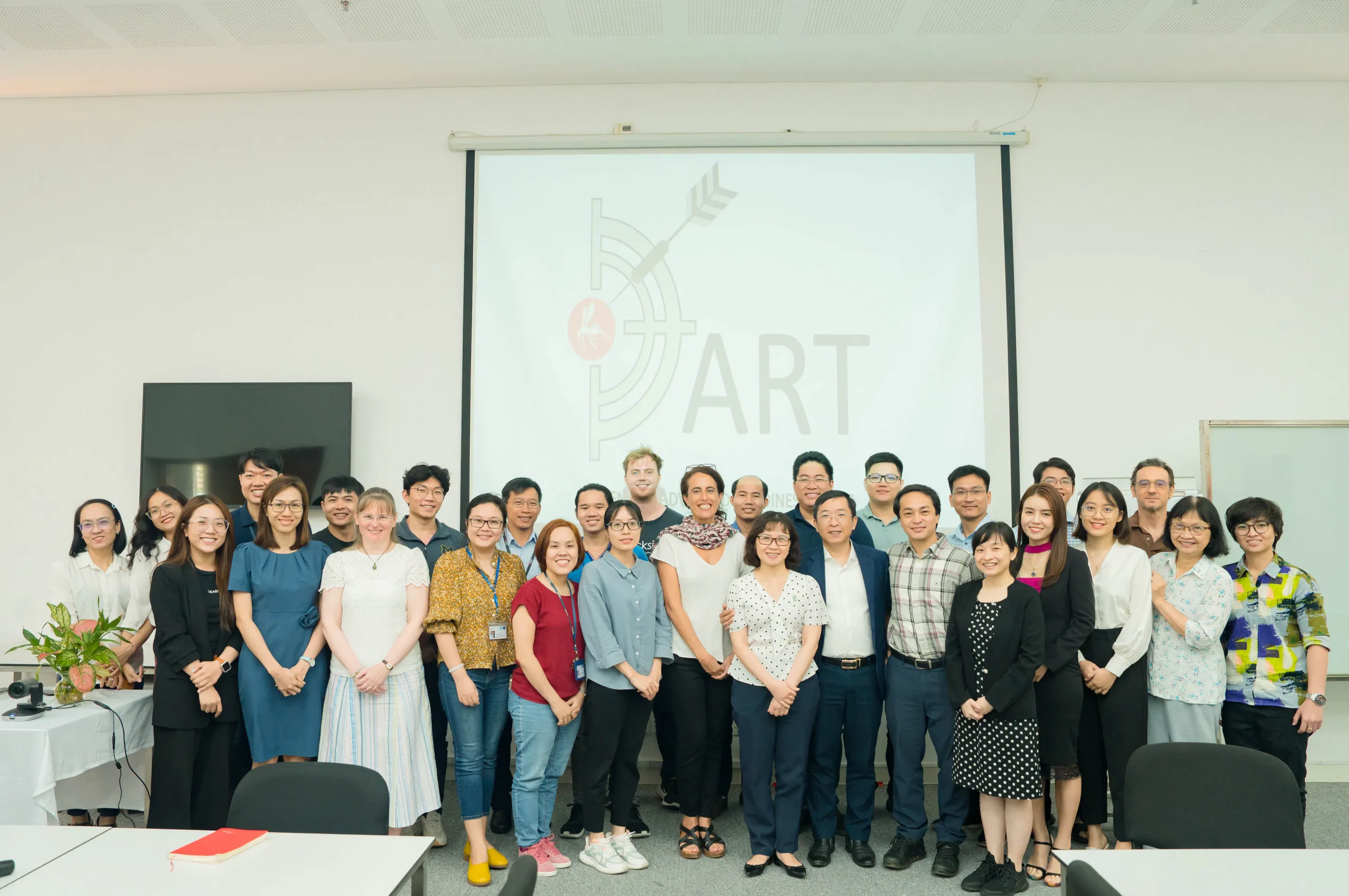Wellcome‘s explainer video featuring Associate Professor Sophie Yacoub, Head of Dengue Group at OUCRU, discusses how we can protect more people from dengue.
Dengue causes a substantial global public health burden, with recent estimates suggesting 51-96 million symptomatic infections occur each year in over 120 countries. Despite this burden, there are no licensed therapies. In a minority of cases, a severe manifestation of shock and organ failure can occur, driven by a disproportionate host immune response. Differentiating this group from the thousands of milder cases presented to healthcare facilities in endemic areas remains challenging, and innovative strategies are urgently needed to improve case management and facilitate the appropriate use of limited resources.
We have established a clinical research platform that has enabled science focused on understanding dengue pathogenesis and pathophysiology, therapeutic trials, and clinical entomology studies. In the last five years, the focus has expanded to include innovative technology, state-of-the-art monitoring and precision medicine approaches to improve dengue management.
The dengue research group at OUCRU has made significant contributions to understanding disease mechanisms, identifying biomarkers and translating these into novel diagnostics and therapeutics.
In collaboration with the WHO, we demonstrated the utility of C-reactive protein as a potential biomarker for disease progression.
Identifying a combination of inflammatory, immune and vascular biomarkers measured early in the illness could predict the development of moderate-severe disease.
In a large pooled dataset of 5,600 patients enrolled on research studies over 15 years, we demonstrated higher plasma viraemia levels are associated with disease severity, regardless of serotype or host immune status.
In collaboration with DUKE-NUS, we have recently demonstrated the pivotal role of PCSK9 and cellular cholesterol in dengue. This study showed how PCSK9 shapes cellular cholesterol to favour dengue viral replication and has led to PCSK9 inhibitors being considered as potential future dengue therapeutics.
Over the last ten years, we have developed the largest programme of dengue therapeutic trials in the world, with four phase-2 studies investigating adjunctive therapies and antivirals (Lovastatin, Corticosteroid, Chloroquine, and Balapiravir).
In the last two years, an improved understanding of biological pathways and risk factors allowed us to develop novel treatment strategies using targeted therapies, focusing on patient groups at the highest risk of severe disease. We are conducting a trial using metformin as a host-directed treatment for dengue patients with obesity and investigating the underlying mechanisms of why obese patients are at risk of severe disease.
We will be starting a Phase 2 randomised control trial using Anakinra (IL1R antagonist) for dengue patients with hyperinflammation in 2023. In addition, we are conducting two trials using an antiviral developed by Janssen Pharmaceuticals, both as treatment in a Phase 2 randomised control trial and as prophylaxis in a community household cluster study.
Another major theme of research is elucidating the pathophysiology of the vascular leak syndrome, optimal fluid management and innovative cardiovascular monitoring of dengue shock syndrome (DSS).
We have demonstrated the contribution of cardiac dysfunction to DSS and when echocardiograms should be used to tailor management. This work has led to cardiac point-of-care ultrasounds being incorporated into the Vietnamese and Malaysian national dengue treatment guidelines. We have contributed seminal data into the unique vascular leak syndrome in dengue through in-vivo and in-vitro studies demonstrating disruptifon of the endothelial glycocalyx layer and nitric oxide pathways as well as through the largest genome-wide-association-study, which identified novel genetic polymorphisms associated with DSS.
In the last 18 months, we have been developing innovative technologies as part of a Wellcome Trust flagship award. In collaboration with engineering teams at Imperial College London, we have developed a first-of-its-kind, non-invasive, wearable sensor tailored for real-time clinical assessment of DSS patients. The provision of continuous physiological data and utilising machine learning are being used to generate clinical decision support systems (CDSS) to enable the early identification of DSS. In collaboration with imaging experts at Kings College London, we are developing automated cardiac and lung ultrasound to facilitate fluid management in severe dengue.
Epidemics of varying sizes occur yearly in endemic settings during rainy seasons, yet real-time and highly spatially resolved predictions of the locations, duration, and size of dengue outbreaks within cities are not currently deployed. Climatic changes and, specifically, extreme events will influence the population dynamics of dengue mosquito vectors and influence the size and duration of outbreaks.
In a large multi-disciplinary project with Oxford University and local Vietnamese institutions, we are currently developing a dengue forecasting tool that provides probabilistic and actionable forecast information about the locations and intensity of dengue outbreaks.
DART is a Wellcome-funded project to develop a multifaceted dengue outbreak forecasting system. The project aims to provide high-resolution dengue forecasting over different time scales, including real-time.

We led a multi-country study of >8000 patients, investigating clinical outcomes, risk factors and biomarkers for dengue.
We established an insectary in Ho Chi Minh City. The insectary facilitated a unique body of work, including the first natural history studies of human-to-mosquito transmission of dengue and critical evidence demonstrating that Wolbachia reduces the transmission potential of mosquitoes after feeding on viraemic dengue patients. Plus, the first identification and characterisation of human monoclonal antibodies that block dengue transmission from viraemic blood to mosquitoes. This work has now moved to field trials under the World Mosquito Programme.
WHO. Handbook for clinical management of dengue. Geneva: World Health Organisation.
WHO. Dengue: guidelines for diagnosis, treatment, prevention and control – New edition. Geneva: World Health Organisation.
We conducted the only large double-blind, randomised trial in DSS, comparing three resuscitation fluids. The main finding that ringer’s lactate (a crystalloid) is as effective as the two colloids for initial resuscitation of paediatric DSS was incorporated in the WHO management guidelines in 2009.